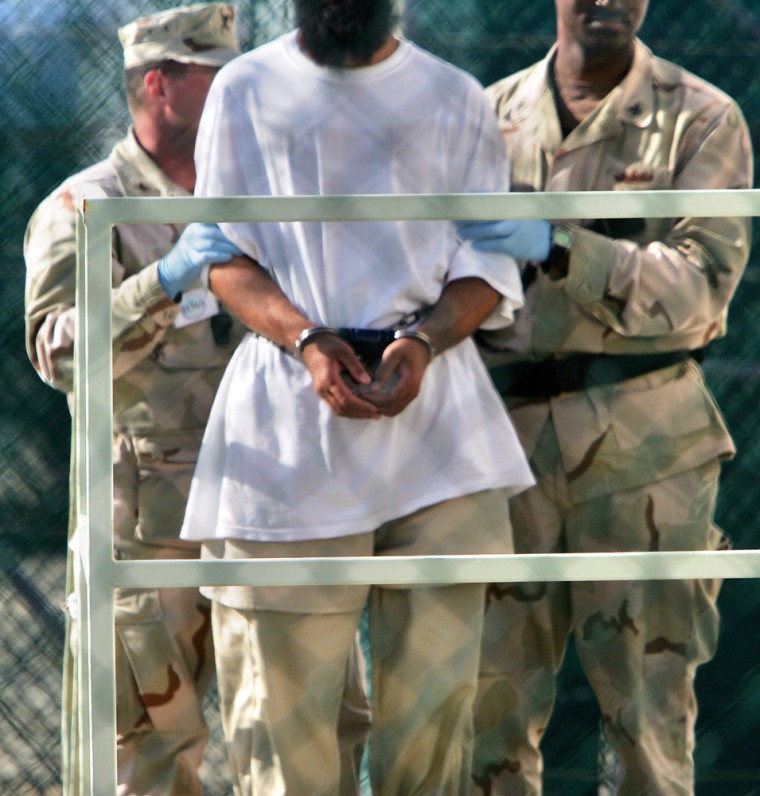More Guantanamo Bay detainees have joined a hunger strike, raising the total to 89, and six of them were being force-fed, the U.S. military said Thursday.
The strike — which last weekend jumped from three participants to 75 — is now the biggest of the year at the U.S. prison on Cuba, where about 460 men are being held on suspicion of links to al-Qaida or the Taliban.
The U.S. military said the detainees were trying to pressure the United States to release them, but a human rights attorney described the strike as a desperate appeal for justice.
Six hunger strikers were being force-fed, said Navy Cmdr. Robert Durand — two more than last weekend.
“All are being closely monitored by the ... medical staff and being counseled on the health effects of long-term hunger striking,” Durand said in a statement from Guantanamo Bay.
Military officials said the hunger strikers are an attempt to gain public sympathy to pressure the United States to release them.
Ben Wizner, an American Civil Liberties Union attorney who has been to Guantanamo Bay, said the growing hunger strike appears more like a call for help by detainees.
“The vast majority have never been charged with any crime, and have been prevented from communicating directly with the outside world,” Wizner said in a telephone interview from New York. “So it may well be their attempt to ensure that the world is reminded of their unlawful detention.”
Violating world’s torture ban
A U.N. panel said May 19 that holding detainees indefinitely at Guantanamo Bay violates the world’s ban on torture. The panel said the United States should close the detention center.
German Chancellor Angela Merkel, Danish Prime Minister Anders Fogh Rasmussen and British Attorney General Lord Goldsmith are among those who also recently have called on the United States to close Guantanamo.
But Secretary of State Condoleezza Rice said Washington cannot turn loose “people who have vowed to kill more Americans if they’re released.”
Only 10 Guantanamo detainees have been charged with crimes. The Supreme Court is expected to rule in June whether President Bush overstepped his authority in ordering the detainees to be tried by U.S. military tribunals.
The hunger strike comes amid increasing displays of defiance from the prisoners, who have been held for up to 4½ years, with many claiming their innocence.
On May 18, a detainee staged a suicide attempt to lure guards into a cellblock where they were attacked by prisoners armed with makeshift weapons, the military said. Earlier that day, two detainees overdosed on antidepressants they collected from other detainees and hoarded in their cells. The men have since regained consciousness.
‘Brutal and inhumane’
The hunger strike began in August and peaked at 131 last fall, according to the military’s count, before declining to three earlier this year as the military used more aggressive force-feeding methods, including a restraint chair. Force-feeding is done through tubes inserted into the nose.
Physicians for Human Rights has called on the United States to halt the “brutal and inhumane force-feeding tactics.”
“The commanders of Guantanamo are not tolerating people on hunger strike,” said Leonard Rubenstein, executive director of the doctors’ group, adding that detainees were apparently being force fed before their lives are at risk.
“These are policy decisions made by commanders, not by physicians,” Rubenstein said from Washington in a telephone interview.
U.S. officials said the measures are “safe and humane” and have been used in American civilian prisons.
